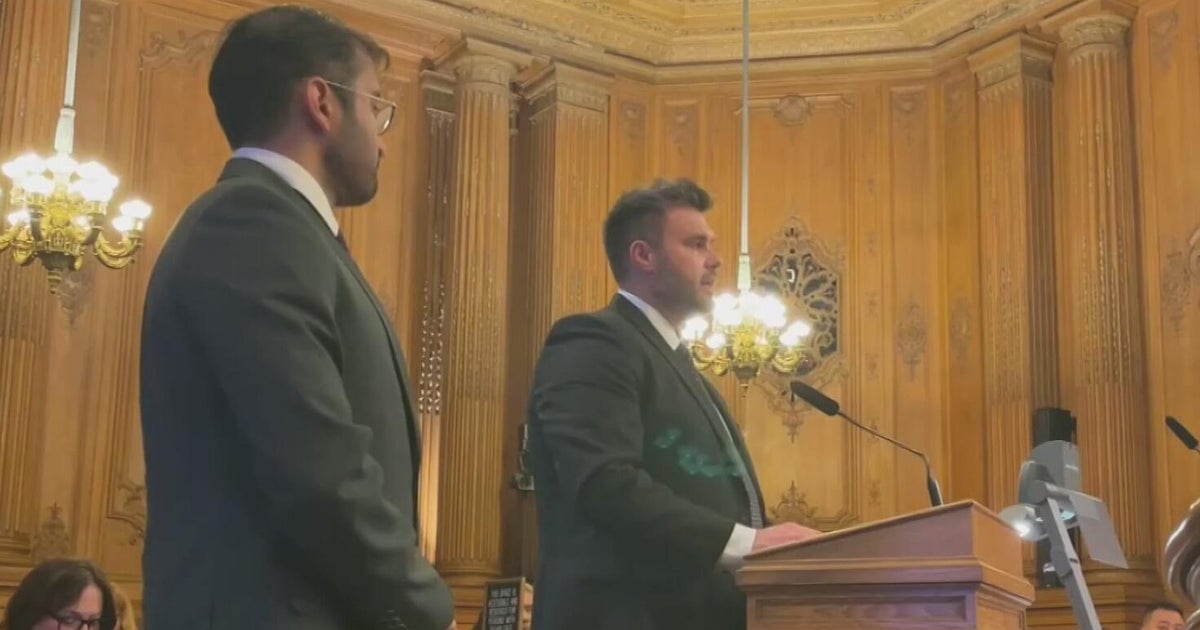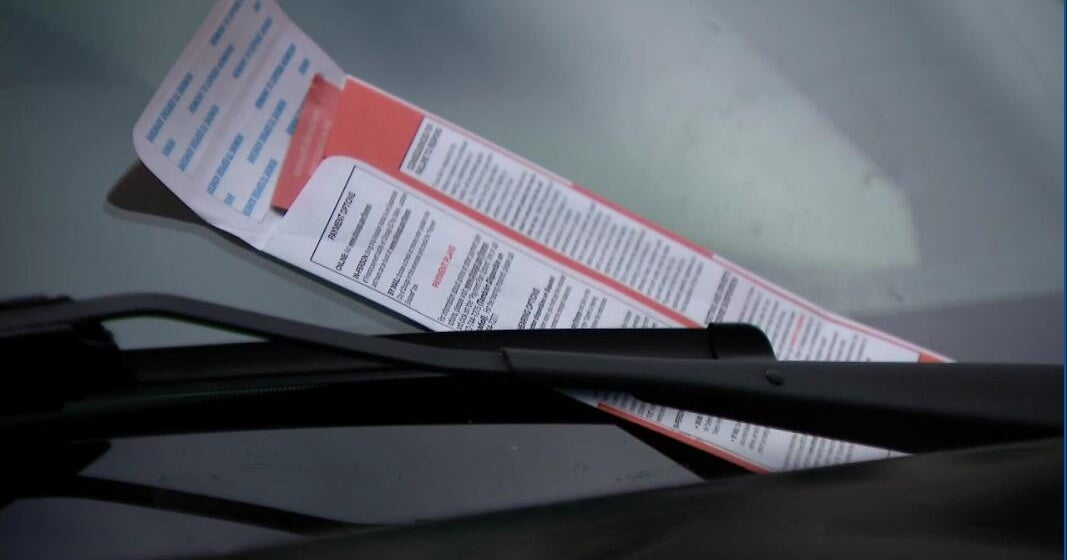San Francisco Cracks Down On Short-Term Rental Violations
SAN FRANCISCO (KPIX 5) – San Francisco residents who rent out their homes on Airbnb and other short-term rental websites should check if they're following the rules, as the city begins cracking down on violations.
With a quaint two-bedroom house, and more time to travel, Betsy Brill and her husband have spent the past three years renting out their home through VRBO.
"This is our home. We've lived here since 1989," Brill told KPIX 5.
They reviewed the city's new laws regulating short-term rentals, they registered their home as a business and even passed along hotel taxes for the city. "These are the records of it," Brill said, pointing to a stack of papers.
So it came as a bit of a shock when they received an orange notice from the Office of Short-Term Rentals.
"Yep, there it was right on the front door. And I was shocked too, because I had no idea we were in violation of this law," Brill said.
Kevin Guy of the Office of Short-Term Rentals said, "The issuance of that notice is what starts the penalty clock ticking, if a property is in violation."
Guy is what one might call the mayor's appointed sheriff in San Francisco's 21st century Wild West of short-term rentals.
"To an extent it's a little bit of a learning process being a new office, a new set of rules," Guy said.
It's a new set of rules that check in with several years' worth of political baggage. Almost as soon as the city passed Administrative Code Chapter 41-A, critics went to the ballot box with even tougher rules in the form of Proposition F, often calling the existing code "unenforceable."
Voters rejected Proposition F in the recent election.
But suddenly, the gears appear to be turning.
"So far we've issued around $400,000 in penalties against short-term rental violations, involving around 37 dwelling units," Guy said.
And now, the city has posted its latest batch of orange notices in several neighborhoods.
"Telegraph Hill, North Beach, Potrero Hill, Cole Valley and The Haight," Guy said.
Twenty more properties across the city are officially under investigation for being unlawfully converted to tourist or transient use.
Referring to her notice, Brill said, "I'm presuming there won't be any fines, since we've operated in good faith."
KPIX 5: "So, of the 20 cases we're looking at, I'm going to call you an honest mistake, by a well-meaning homeowner, who resides in the residence. Is that fair?"
Brill: "That's perfectly fair."
Out of these 20 cases, Brill was the only property owner who agreed to speak with KPIX 5 on camera. Off-camera, one flatly admitted they broke the rules, got caught and paid their fine, while another said they had absolutely no idea how their property became an online rental listing.
But most of these cases have one thing in common, the rental properties in question are not currently registered as the owner's permanent address.
"That's something that is not eligible for the program, it's taking housing stock off the rental market," Guy said.
In fact, three of the properties belong to one single owner. Guy explained, "Those are problematic because by definition you can't be a resident of multiple properties across the city, all at one time."
When KPIX 5 actually visited the properties that appear to have absentee owners, we found plenty of lockboxes, keyless doors, and neighbors who knew exactly why we were there.
"Somebody bought this place, and almost instantly there was traffic in and out of it," said Vicki Rega, a neighbor of one of the properties.
Those neighbors are often thrilled to hear that the city is on the case.
"I am. I was hoping you would be the one to say that's what's happening," Rega said.
Try to find those listings now and users will see something like "no longer available," which really speaks to the difficulty of enforcement. The city is following at least 5,000 moving targets, scanning websites and following up on complaints, all while trying to get more hosts to officially register.
"We have around 200 appointments scheduled, through the end of the year," Guy said.
For anyone out there who might be breaking the law, Guy said, "The enforcement may eventually catch up with them if they're not registered and not doing this in the way that they should."
The numbers can be hard to pin down, but since the November vote on Proposition F, the percentage of short-term rental units in compliance with city law has climbed from less than ten percent, to perhaps 15 percent.







